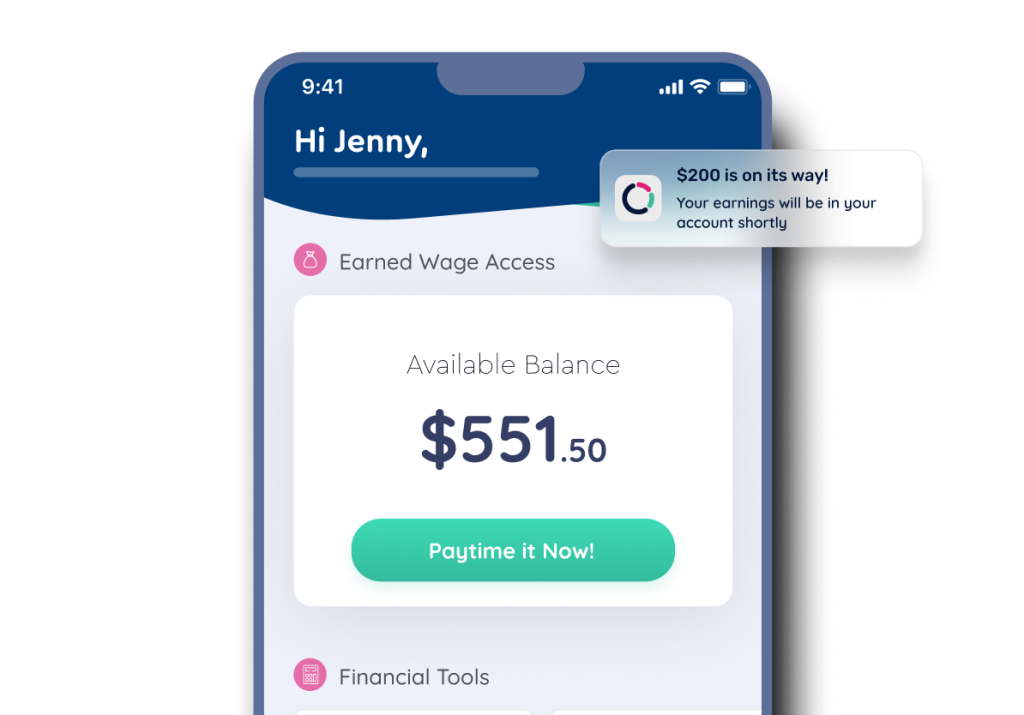Payday super
Prepare your business for Payday Super:
Understanding the July 2026 superannuation changes and how to best adapt

Prepare your business for Payday Super:
Understanding the July 2026 superannuation changes and how to best adapt







Is your business ready for a significant change to superannuation payments?
The Australian government announced the introduction of “Payday Super” from 1 July 2026. This change means all employers will need to pay superannuation entitlements on the same day that payroll is run, not quarterly or monthly as is currently standard practice.
Cash flow required to pay wages increases by 12%
The numbers tell a compelling story: at the end of June 2023, the Australian Tax Office (ATO) estimated more than A$2.2 billion of super debt was still owed by employers to employees. In FY20 alone, an estimated $3.4 billion worth of super went unpaid. Payday Super aims to close this gap and ensure Australians receive the retirement funds they’ve earned. This change will:
Give your employees greater visibility over their super payments
Provide the ATO with real-time insights into payment compliance
Create a more transparent system for tracking and managing super obligations

For many businesses, adapting to Payday Super will create new administrative demands:
Transparency is about to increase significantly. With Payday Super, the ATO gains unprecedented visibility into your super payment patterns. Where unpaid contributions might previously have gone unnoticed for months, the new system creates immediate visibility. For your business, this means:
See how Paytime turns Payday Super into cash flow


Non-compliance brings further financial consequences through SG charges, employee notifications, potential legal proceedings, and costly late payment penalties.
See how Paytime turns Payday Super into cash flow
With Payday Super approaching, many companies are looking for ways to minimise the administrative burden it brings, while maintaining employee satisfaction. There is one popular strategy that companies are increasingly adopting, that creates advantages for both company and staff:

Learn about Earned Wage Access
While changing pay cycles benefits your business financially, it traditionally means employees wait longer between paycheques. This is where Paytime offers a unique solution. With Paytime’s Earned Wage Access, you get the best of both worlds:
Learn about Earned Wage Access

Changing your pay cycle frees up substantial working capital
that can be reinvested into your business, as well as providing ongoing bottom line savings.
See what else Paytime can do for you.

We transitioned our pay cycle from weekly to fortnightly while offering Paytime to our employees. It gives our employees the flexibility to get paid on their own terms and unlocks significant working capital and administrative savings for the business

Andrew Gage
Head of People and Culture at ServCo
Book a demo today to discover how our solution can help you adapt to Payday Super requirements while improving your financial position.

Payday Super requires employers to pay superannuation contributions at the same time as salary and wages, rather than quarterly. It takes effect on July 1, 2026, with contributions required to reach employees’ superannuation funds within 7 calendar days of payday. This legislation applies to all employers regardless of size or industry.
Businesses will need to allocate funds for super contributions with each pay cycle instead of quarterly or monthly. For businesses with weekly pay cycles, this could mean up to 52 super payments annually instead of just 4 (or 12 if you pay monthly). This increased frequency may strain cash flow.
Employers must update payroll systems to calculate, track, and submit super payments with each pay cycle. The Small Business Superannuation Clearing House (SBSCH) will be retired by July 1, 2026, requiring businesses to transition to commercial solutions. Additionally, the ATO will have enhanced capabilities to monitor superannuation payments in near real-time through Single Touch Payroll data, making compliance monitoring more rigorous. There will also be significantly more payroll time spent on running payroll each time, in order to ensure that the superannuation amount to be paid is accurate. As companies cannot make retrospective adjustments.
Paytime’s Earned Wage Access solution creates a win-win scenario when changing pay cycles. Extending pay cycles benefit your business, through reduced admin burden and improved cash flows, and for Employees they can still access their earned pay automatically each week (and more if needed). This ensures company benefits don’t come at employees’ expense, as both employer and staff benefit from this approach.
Late or missed payments trigger the Superannuation Guarantee Charge (SGC), which includes the unpaid super amount, notional earnings (interest), an administrative uplift of up to 60% of the shortfall, and potential late payment penalties. While the SGC will be tax-deductible under the new system (excluding penalties and interest incurred after 28 days), the immediate financial and reputational impact can be significant.
Employees will see their super contributions invested sooner, with funds required to allocate contributions within 3 business days instead of 20. This more frequent investment can lead to better retirement outcomes through compounding returns. Treasury estimates that a 25-year-old median income earner could be around $6,000 or 1.5% better off at retirement due to more frequent payments. Employees will also experience greater transparency in tracking their super contributions.
Our Payday Super information is based on authoritative sources including:
For the most current information on Payday Super implementation, we recommend regularly checking the ATO website and consulting with your financial advisors.
Last updated: April 2025
Your payroll stays exactly the same. We handle everything else.
© 2023 Paytime